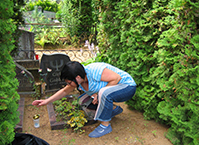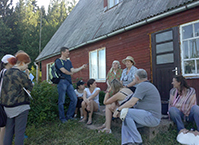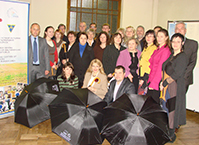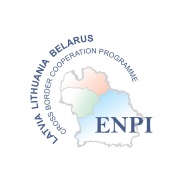How important are relatives and neighbours? Do such events as relatives and neighbours’ parties, get-togethers exist?
Categories: Liga Seikste-Deksne
Relatives and neighbours, if you live in the country, I guess, the neighbours are even more important than the relatives, because, here we have to mention that Soviet time again, when people acquired professions, then they went to work where they had been appointed by the state’s officials. Very often they established their families there and, let’s say, that relatives’ living geographically close to each other was a rare case. You see, a situation that one family lived in Gulbene, the sister, the brother lived in Ogre, Riga, Valmiera or somewhere else – well, it was normal, it was usual. Thus, people did not have many possibilities to see each other often on free days, apart from, of course, weddings, funerals, christening. However, people actively celebrated round anniversaries – that is – 5, 10, 15, 20 years of age and so on. These anniversaries were celebrated substantially, ambitiously – all the relatives and, in principle, also all the neighbours were invited, both those with whom one had better relations and with whom their relations, mabe, were not so good, since, in the countryside, one can do without the relatives, but without the neighbours, a man actually is not able to cope with all the seasonal jobs. Those jobs were carting out dung, digging potatoes, making hey, when the seasonal jobs should be done quickly and those 2, 3, 4, 5 people living in one house, in fact, were not able to manage that farm in such a short period. Therefore, the neighbours, I’d say, were much appreciated. Although, at table, people mainly spoke with the relatives, because they met them less frequently.
The tables were richly served. People borrowed the tables, tablecloths, tableware from the same neighbours. To organize a proper fete means to butcher a pig, to butcher a calf, cooks are working at your home for 2-3 days cooking jelly rolls, pork chops, meat croquettes, various salads and the rest. And then, on that fete day, the relatives arrive, the neighbours come. Of course, they have the meal, but it can be said, that that table was laid not so much to eat profusely, but rather to show one’s prosperity, to show that I can afford it, I have what to put on the table, I’m doing well, to make an impression. Because very often, after such get-togethers, even those who had come from afar got their bags full of gifts – foodstuffs. But in that evening they sang a lot, those who wanted went dancing and thus the fete lasted by the very morning. Very often, if it was Saturday or Sunday, the young generation left, so to say, old ones to sing at table but they themselves went to a dancing party. And, in the morning, having come back from the dancing party they often found the older generation still singing at table.
Audio
Researcher: Dr. philol. Valentīns Lukaševičs, Daugavpils Universitāte










